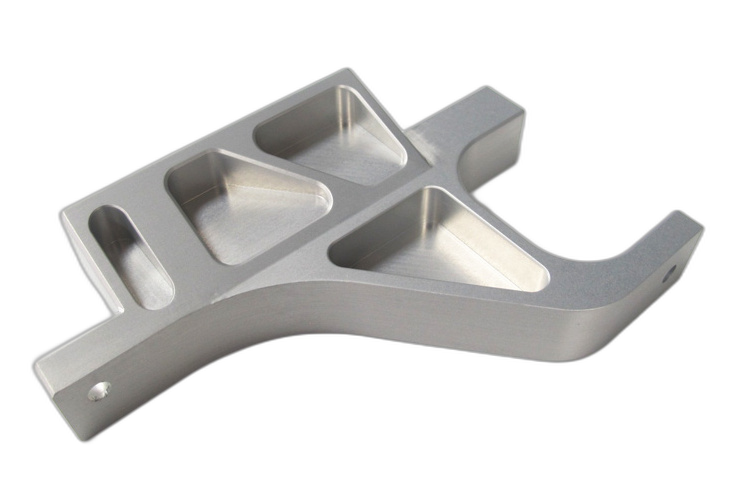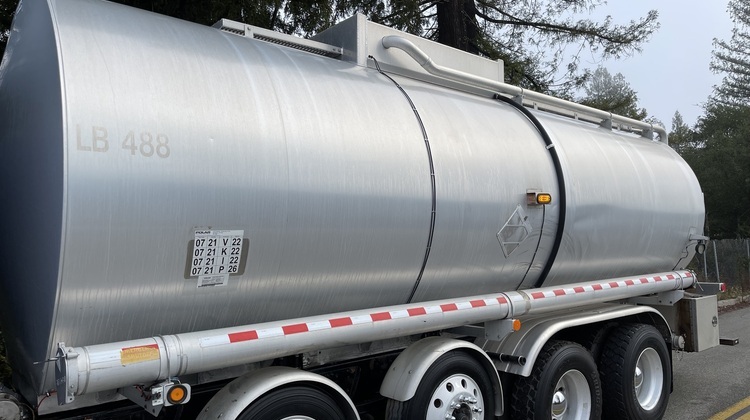Aluminum 5083-H111
Aluminum 5083-H111: Marine-grade aluminum with high strength, excellent corrosion resistance, and good weldability. Ideal for shipbuilding and marine structures. Avoid high temperatures.

Chemical Composition of Aluminum 5083-H111
Aluminum 5083-H111 is a popular alloy known for its exceptional properties in marine applications, high strength, and corrosion resistance. The “H111” temper indicates that the material has undergone minimal strain hardening, making it suitable for structures that require a certain level of strength but also need to retain good formability.
| Chemical Composition | Proportions | Role of Each Element |
|---|---|---|
| Aluminum (Al) | remainder | The base metal that gives the alloy its lightweight properties. |
| Magnesium | 4-5% | The main alloying element, which provides strengthening through solid solution hardening. Also improves corrosion resistance. |
| Manganese | 0.4-1% | Added to control grain structure, which improves strength without reducing ductility. |
| Chromium | 0.05-0.25% | Added in small amounts to control grain structure and prevent recrystallization. |
| Silicon | 0.4% max | Restricted as it can reduce ductility and corrosion resistance when present in excess. |
| Iron | 0.4% max | Restricted as it can cause reduced fracture toughness when present as an impurity. |
| Zinc | 0.25% max | Added in small quantities to give a minor improvement in strength. |
| Titanium | 0.15% max | Added to refine the grain size. |
| Other | 0.15% max | Trace impurities restricted to low levels. |
The H111 indicates an annealed plus stabilized temper, giving optimal corrosion resistance.
General Characteristics of Aluminum 5083-H111
Aluminum 5083-H111: Marine-grade, high strength, excellent corrosion resistance, good formability, suitable for welding, and minimal strain-hardened. Ideal for marine and cryogenic applications.
Expert CNC Machining: We Know Materials Inside Out.
Physical properties
| Density | 2.66 g/cm3 |
| Corrosion resistance | Excellent in water and marine environments |
| Melting Point | ~595°C (~1103°F) |
| Magnetism | Non-magnetic |
| Coefficient of Thermal Expansion | 24 x 10-6 m/m-K |
| Thermal Conductivity | 120 W/m-K |
| Electrical properties | Approximately 22% IACS |
Mechanical properties
| Ultimate Tensile Strength (UTS) | 290 MPa (42 ksi) |
| Yield Strength | 125 MPa (18 ksi) |
| Elongation at break | 24% |
| Modulus of Elasticity (Elastic Modulus) | 72 GPa (10,400 ksi) |
| Fatigue Strength | 103 MPa (15 ksi) |
| Brinell Hardness | around 68 HB |
| Vickers hardness | About 60-65 HV |
| Machinability | Good |
Available Surface Finishing
| Anodizing | Type II (Sulfuric Acid Anodizing): Provides a thin oxide layer, which can be dyed in various colors. Type III (Hard Anodizing): Produces a thicker, wear-resistant layer. |
| Powder Coating | Electrostatically applied and cured under heat to form a hard protective or decorative layer. |
| Electroplating | Deposition of metals like chrome or nickel onto the aluminum surface to provide a reflective finish or added corrosion resistance. |
| Chromate Conversion Coatings | Provides good corrosion resistance and an excellent primer layer for paint or other coatings. |
Note: The properties of Aluminum 5083-H111 can exhibit minor variations depending on the supplier.
Types of CNC Machining Aluminum Process
AT-Machining provides premium aluminum machining services as a leading CNC machining supplier in China. Our expansive capabilities allow us to manufacture high-quality aluminum products in diverse shapes and sizes.
Services include CNC milling, turning, Swiss machining, EDM, and grinding. Combining these techniques enables optimized production to meet the stringent quality and accuracy demands of our customers.
With seasoned engineers tailored to each project, we create efficient machining solutions leveraging our broad expertise in aluminum.
AT-Machining is committed to delivering exceptional quality finishes with a customer-centric focus as a premier Chinese CNC machining partner.
Common Applications of Aluminum 5083-H111
5083 aluminum is highly versatile, used in cryogenic tanks, pipes, household appliances, camera lenses, stage rigging, and scaffolding. Its properties are particularly suited for applications where corrosion resistance is paramount.

Marine Vessels
The excellent corrosion resistance of 5083-H111 makes it ideal for marine applications like hulls, masts, and other components exposed to saltwater. H111 provides optimal anticorrosion properties. Moderate strength meets structural needs.

Fuel Tanks
5083-H111 is commonly used for fuel, oil, and water tanks in marine vessels and land-based storage applications where corrosion resistance is critical. H111 tempering maximizes anticorrosion properties.

Bodies for Buses and Trucks
The good formability, weldability, and corrosion resistance of 5083-H111 alloy make it suitable for truck and bus body panels that undergo shaping and welding during manufacture. H111 offers the best combination with moderate strength.
FAQS About Aluminum 5083-H111
Yes, Aluminum 5083-H111 is known for its good weldability, making it a preferred choice for welded structures.
The “H111” temper indicates that the material has undergone minimal strain hardening, making it suitable for structures requiring strength and good formability.
Yes, besides saltwater, it also offers good resistance to many chemicals, making it suitable for chemical storage and transport.
Yes, it retains its mechanical properties at very low temperatures, making it suitable for cryogenic storage tanks and related applications.
Let's raise your project profit to the next level, NOW! →
Get an instant quote
Please compress the file into a ZIP or RAR file before uploading or send an email with attachments to: info@at-machining.com
We will reply to you within 6 business hours.

